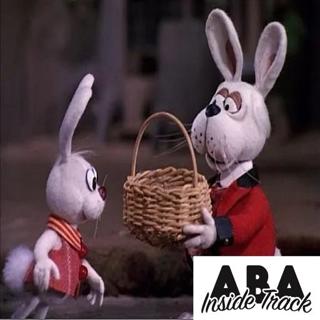
Episode 310 - PIctorial and Video Preference Assessments
Since time immemorial BCBAs have looked at their seven-item array of candies and asked, "Why can't I do a preference assessment with huge items or unavailable activities?" Well, now you can with pictorial and/or video-based preference assessments! But don't take my word for it. Or, do take my word for it, but my word paired with the word of all the research on the subject. And if you're already using this technology in your preference assessments, shouldn't you better double-check that you're actually following the evidence-based guidelines. Or did you just assume that the picture of hanging out with friends playing on the iPad must be equivalent to the real thing? This episode is available for 1.0 LEARNING CEU. Articles discussed this episode: Heinicke, M.R., Carr, J.E., Pence, S.T., Zias, D.R., Valentino, A.L., & Falligant, J.M. (2016). Assessing the efficacy of pictorial preference assessments for children with developmental disabilities. Journal of Applied Behavior Analysis, 49, 848-868. doi: 10.1002/jaba.342 Brodhead, M.T., Al-Dubayan, M.N., Mates, M., Abel, E.A., & Brouwers, L. (2016). An evaluation of a brief video-based multiple-stimulus without replacement preference assessment. Behavior Analysis in Practice, 9, 160-164. doi: 10.1007/s40617-015-0081-0 Wolfe, K., Kunnavatana, S.S., & Shoemaker, A.M. (2018). An investigation of a video-based preference assessment of social interactions. Behavior Modification, 42, 729-746. doi: 10.1177/0145445517731062 If you're interested in ordering CEs for listening to this episode, click here to go to the store page. You'll need to enter your name, BCBA #, and the two episode secret code words to complete the purchase. Email us at abainsidetrack@gmail.com for further assistance.
21 Maj 56min

Episode 1013 - (UNLOCKED) Activity Schedules for Children with Autism Book Club
UNLOCKED from our Patreon page, it's the "Activity Schedules for Children with Autism" Book Club! Interested in more Book Clubs? Want to vote on what we read next? Feeling FOMO at getting this a full year late? Wish your 2 CEs for listening to the episode were FREE??? Join us on Patreon to get all of our episodes a week early, access to these bonus episodes, plus other goodies. For our Spring 2024 Book Club we decided to read something a little lighter that could lead right into some new practice options. And, boy did we hit gold with McClannahan and Krantz's "Activity Schedules for Children with Autism"! We gush profusely about the majority of the book's content for a while then dive in with a review of the basics of teaching a child to independently use an activity schedule…with some modern quality-of-life suggestions where things get a little dated. Listen and learn nearly everything you need to know about creating and teaching activitiy schedules. Coming soon: Our Language Master-compatible recording on 144,000 flash cards! This episode is available for 2.0 LEARNING CEUs. Content discussed in this episode: McClannahan, L.E. & Krantz, P.J. (1999). Activity schedules for children with autism: Teaching independent behavior. Woodbine House. McClannahan, L.E. & Krantz, P.J. (2010). Activity schedules for children with autism: Teaching independent behavior. (2nd ed.). Woodbine House. If you're interested in ordering CEs for listening to this episode, click here to go to the store page. You'll need to enter your name, BCBA #, and the two episode secret code words to complete the purchase. Email us at abainsidetrack@gmail.com for further assistance. Want these CEs for FREE? Just subscribe to our Patreon at the $10+ levels and go to the original post for a discount code.
14 Maj 2h 17min

May 2025 Preview
While Jackie's away (and stuck in an elevator) Rob and Diana will play…podcast hosting duties for the month. This month last spring's Book Club choice, "Activity Schedules for Children with Autism" gets released to the free feed (with free CEs for Patreon subscribers!) with new episodes on preference assessments and practicing within a school context. And speaking of pairs of awesome behavior analysts, special guest, John Staubitz, gives us the rundown on special education laws and what BCBAs really need to know about the scope of schoolwork. Now's the time on podcast when we dance! Articles for May 2025 (UNLOCKED) Activity Schedules for Children with Autism Book Club McClannahan, L.E. & Krantz, P.J. (1999). Activity schedules for children with autism: Teaching independent behavior. Woodbine House. McClannahan, L.E. & Krantz, P.J. (2010). Activity schedules for children with autism: Teaching independent behavior. (2nd ed.). Woodbine House. Rehfeldt, R.A. (2002). A review of McClannahan and Krantz's "Activity schedules for children with autism: Teaching independent behavior": Toward the inclusion and integration of children with disabilities. The Behavior Analyst, 25, 103-108. doi: 10.1007/BF03392048 PIctorial and Video-Based Preference Assessments Heinicke, M.R., Carr, J.E., Pence, S.T., Zias, D.R., Valentino, A.L., & Falligant, J.M. (2016). Assessing the efficacy of pictorial preference assessments for children with developmental disabilities. Journal of Applied Behavior Analysis, 49, 848-868. doi: 10.1002/jaba.342 Brodhead, M.T., Al-Dubayan, M.N., Mates, M., Abel, E.A., & Brouwers, L. (2016). An evaluation of a brief video-based multiple-stimulus without replacement preference assessment. Behavior Analysis in Practice, 9, 160-164. doi: 10.1007/s40617-015-0081-0 Wolfe, K., Kunnavatana, S.S., & Shoemaker, A.M. (2018). An investigation of a video-based preference assessment of social interactions. Behavior Modification, 42, 729-746. doi: 10.1177/0145445517731062 Practicing Within a School Context w/ John Staubitz Stevenson, B.S. & Correa, V.I. (2019). Applied behavior analysis, students with autism, and the requirement to provide a free appropriate public education. Journal of Disability Policy Studies, 29, 206-215. doi: 10.1177/1044207318799644 Stevenson, B., Bethune, K., & Gardner, R. (2024). Still left behind: How behavior analysts can improve children's access, equity, and inclusion to their entitled education. Behavior Analysis in Practice. doi: 10.1007/s40617-024-00992-4 Copeland, S.R., Duffie, P., & Maez, R. (2025). Preparation of behavior analysts for school-based practice. Behavior Analysis in Practice. doi: 10.1007/s40617-024-01028-7
7 Maj 18min

Episode 309 - (CULTURAL/ETHICS) Family Supports and Contextualized Treatment Planning
Though the steps involved in developing a good, evidence-based treatment plan are well documented on our podcast, what good is any of that hard work if the families you purport to use it with kinda, sorta hate your plan. Well, this week, rather than complaining about how unappreciated your procedures are, why not take a step back and ask yourself, "How can I better learn from families I work with what will meet their needs?" We take a run down to explore the ever-confusing and complex world of family services, take a qualitative look at social validity in treatment planning, and review some key contexts that spell the difference between a good plan and a plan that works. This episode is available for 1.0 CULTURAL (ETHICS) CEU. Articles discussed this episode: Russa, M.B., Matthews, A.L., & Owen-DeSchryver, J.S. (2015). Expanding supports to improve the lives of families of children with autism spectrum disorder. Journal of Positive Behavior Interventions, 17, 95-104. doi: 10.1177/1098300714532134 Moes, D.R. & Frea, W.D. Using family context to inform intervention planning for the treatment of a child with autism. (2000). Journal of Positive Behavior Interventions, 2, 40-46. doi: 10.1177/109830070000200 Guinness, K.E., Atkinson, R.S., & Feil, E.G. (2024). Evaluating social validity to inform intervention development: Qualitative analysis of caregiver interviews. Behavior Analysis in Practice, 17, 870-879. doi: 10.1007/s40617-023-00899-6 If you're interested in ordering CEs for listening to this episode, click here to go to the store page. You'll need to enter your name, BCBA #, and the two episode secret code words to complete the purchase. Email us at abainsidetrack@gmail.com for further assistance.
30 Apr 1h 5min

Episode 308 - You Forgot To Do Your Paperwork
"WAZOWSKI! YOU DIDN'T FILE YOUR PAPERWORK LAST NIGHT!" is a line that resonates with all of us (and we make about 50 times in this episode). But, despite a fear of our own personal Rozes at work, most of us still tend to let those pesky piles of papers slip our minds as we go about the important business of being a behavior analyst (the direct helping of others). But, as with most skills, there's got to be a better way and, this week, we take that mantra all the way to the In Box with research on how you too can become a paperwork pushing master. This episode is available for 1.0 LEARNING CEU. Articles discussed this episode: Luna, O. & Rapp, J.T. (2019). Using a checklist to increase objective session note writing: Preliminary results. Behavior Analysis in Practice, 12, 622-626. doi: 10.1007/s40617-018-00315-4 Halbur, M., Reidy, J., Kodak, T., Cowan, L., & Harman, M. (2024). Comparison of enhanced and standard data sheets on treatment fidelity and data collection for tact training. Behavior Analysis in Practice, 17, 533-543. doi: 10.1007/s40617-023-00869-y Brown, K.J. (2022). The use of a pictorially enhanced self-instruction packet ot improve weekly time sheet completion in an ABA clinic. Journal of Organizational Behavior Management. doi: 10.1080/01608061.2022.2063221 If you're interested in ordering CEs for listening to this episode, click here to go to the store page. You'll need to enter your name, BCBA #, and the two episode secret code words to complete the purchase. Email us at abainsidetrack@gmail.com for further assistance.
23 Apr 1h 5min

Episode 307 - (LISTENER CHOICE) Tutorial: Token Economy
We're finishing up our two-part Listener Choice episodes highlighting tutorial articles that give you the "how to" when it comes to important BCBA skills. And if you enjoyed our episode on procedural integrity, you're going to LOVE this tutorial all about using token economies. We dive into some token economy history, basic set up, application, and come to the conclusion that WE'VE BEEN DOING TOKEN ECONOMIES WRONG! Or, at least not as well as we could be. If you've ever laminated Sponge Bob stickers, you owe it to yourself to listen to this episode. This episode is available for 1.0 LEARNING CEU. Articles discussed this episode: Ackerman, K. B., Samudre, M., & Allday, R. A. (2020). Practical components for getting the most from a token economy.Teaching Exceptional Children, 52(4), 242-249. doi: 10.1177/0040059919892022 Kazdin, A.E. (1982). The token economy: A decade later. Journal of Applied Behavior Analysis, 15, 431-445. doi: 10.1901/jaba.1982.15-431. doi: 10.1901/jaba.1982.15-431 Degli Espinosa, F. & Hackenberg, T.D. (2024). Token economies: Evidence-based recommendations for practitioners. Behavioral Interventions. doi: 10.1002/bin.2051 If you're interested in ordering CEs for listening to this episode, click here to go to the store page. You'll need to enter your name, BCBA #, and the two episode secret code words to complete the purchase. Email us at abainsidetrack@gmail.com for further assistance.
16 Apr 1h 4min

Episode 306 - Hoppin' Down the Grab-Bag Trail (Spring 2025 Grab Bag)
Here come Research Cottontail. Hoppin' down the ABA trail. Hippity hoppity, Grab Bag's on it's waaaaaaaay! Bringing every behavior analyst Baskets full of discussion panelists Things to make your Grab Bag podcast greaaaaaat! This episode is available for 1.0 LEARNING CEU. Articles discussed this episode: Nevill, R.E., Crawford, M.F., Zarcone, J.R., Maquera, E., Rooker, G.W., Schmidt, J.D. (2024). A retrospective consecutive controlled case series analysis of the assessment and treatment of elopement in children with autism in an inpatient setting. Behavior Analysis in Practice. doi: 10.1007/s40617-024-00979-1 Santa Cruz, H. A. C., MIltenburger, R. G. & Baruni., R. R. (2024). Evaluating remote behavioral skills training of online gaming safety skills. Behavior Analysis in Practice, 17, 246-256. doi: 10.1007/s40617-023-00830-z Kelly-Sisken, S., Reeve, K. F., McPheters, C. J., Vladescu, J. C, Reeve, S. A., & Jennings, A. M. (2025). Comparing equivalence-based instruction to a PowerPoint video lecture to teach differential reinforcement descriptors to college students. Behavioral Interventions, 40, online first publication. doi: 10.1002/bin.70002 If you're interested in ordering CEs for listening to this episode, click here to go to the store page. You'll need to enter your name, BCBA #, and the two episode secret code words to complete the purchase. Email us at abainsidetrack@gmail.com for further assistance.
9 Apr 1h 8min

PREVIEW - Divergent Mind Book Club
Enjoy a short preview of our latest full-length Book Club episode. Want to hear the whole thing and get 2.5 CEs for FREE? Subscribe to our Patreon today at the premium $10+ levels for that plus other bonuses! Could this book actually save your marriage? Well, that's not really the point of it; however, we found a LOT to enjoy and reflect on in our discussion of "Divergent Minds" by Jenera Nerenberg, a broad look at adult female neurodiversity in the modern era. Just how much of our socialization process practically mandates masking behavior in autistic women? And what does it mean to an individual labeled "highly sensitive" when entering the workforce or family life? Join us as we take a look at five commonly identified neurodivergences and the experiences of the women learning to live in a world not designed for them. This full version of this episode is available for 2.0 LEARNING CEUs. Patrons at the $10 and up level, as part of your subscription, you'll be able to earn these CEs for no charge! Subscribe to our Patreon today! Content discussed in this episode: Nerenberg, J. (2020). Divergent mind: Thriving in a world that wasn't designed for you. Harper One.
7 Apr 42min






















